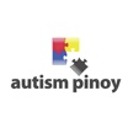Early Diagnosis can Make a Huge Difference...
In clinical terms, there are a few absolute indicators, often referred to as red flags, that indicate that a child should be evaluated. For a parent, these are the red flags that your child should be screened to ensure that he/she is on the right developmental path. If your baby shows any of these signs, please ask your pediatrician or family practitioner for an immediate evaluation:
The following red flags may indicate a child is at risk for atypical development, and is in need of an immediate evaluation:
* No big smiles or other warm, joyful expressions by six months or thereafter
* No back-and-forth sharing of sounds, smiles, or other facial expressions by nine months or thereafter
* No babbling by 12 months
* No back-and-forth gestures, such as pointing, showing, reaching, or waving by 12 months
* No words by 16 months
* No two-word meaningful phrases (without imitating or repeating) by 24 months
* Any loss of speech or babbling or social skills at any age
Other possible signs of autism:
* not play "pretend" games (pretend to "feed" a doll)
* not point at objects to show interest (point at an airplane flying over)
* not look at objects when another person points at them
* have trouble relating to others or not have an interest in other people at all
* avoid eye contact and want to be alone
* have trouble understanding other people's feelings or talking about their own feelings
* prefer not to be held or cuddled or might cuddle only when they want to
* appear to be unaware when other people talk to them but respond to other sounds
* be very interested in people, but not know how to talk, play, or relate to them
* repeat or echo words or phrases said to them, or repeat words or phrases in place of normal
language (echolalia)
* have trouble expressing their needs using typical words or motions
* repeat actions over and over again
* have trouble adapting when a routine changes
* have unusual reactions to the way things smell, taste, look, feel, or sound
* lose skills they once had (for instance, stop saying words they were once using)
*This information has been provided by First Signs, Inc. ©2001-2005
